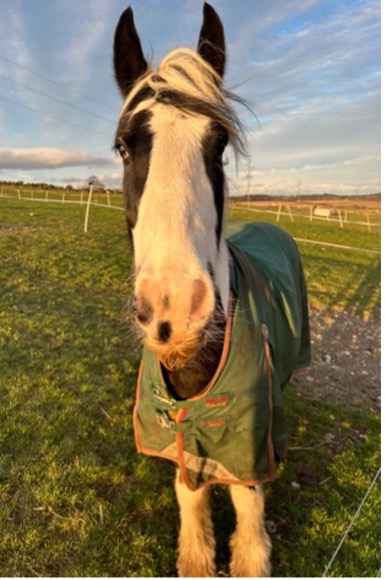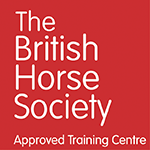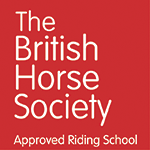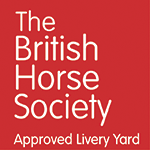
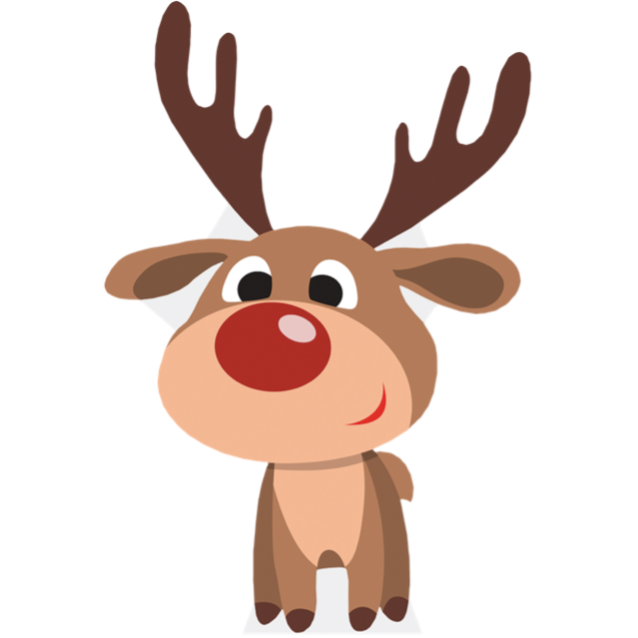
Hello everyone and welcome to the December newsletter! We can’t believe it’s already December and we are marching towards Xmas but at least it means we are marching towards the shortest day soon too!
XMAS PRESSIES!
As with previous years, we are making a request that if members wish to get a present for the horses and ponies that they buy a (minimal value) edible gift and place it under the Xmas tree in the coffee area. The reason that we do this is so that nobody goes and spends daft money on things for the horses and ponies – our view is that we fund their care and equipment, from funds we receive from members for lessons and membership over the year, so they don’t need anything equipment wise – apples/carrots/polos/turnips e.t.c. are all very appreciated and if you put them under the Xmas tree we then make sure that the horses and ponies get them on Xmas Day!
OPENING HOURS
As normal, we are closed on 24th/25th/26th/31st December and the 1st/2nd January – this ensures our staff get some well-deserved time off and that our horses and ponies get some down time in the field with their pals.
Over the two week period from 22nd Dec – 4th Jan inclusive, we run “skeleton lessons” so not as many lessons as normal, but still a selection of each standard. If you would like to book a lesson during the skeleton period, then just pop into reception to check what time and day the correct standard is for you or your young rider.
JANUARY PRIVATE LESSON BOOKINGS
As the last Monday in December is a holiday, we will be opening private lesson bookings for January on Wednesday 20th December at 10.00a.m for December only to ensure we have reception cover for taking bookings. So, if you would like to book some private lessons/assessment training/walkies e.t.c. for January then jot that date down in your diary!
BOOKINGS AND PAYMENTS
Another polite reminder this week that all sessions need to be booked and paid for a minimum of 24 hours in advance, or we will be unable to provide a horse or pony for your session.
There are several reasons for this – once we are 24 hours from a lesson, the worksheet for the horses and ponies has been made up and we take into account what work a horse does on each day of the week before allocating horses for lessons. This also then affects our staff team as we have a certain amount of staff allocated to catching in/tacking up e.t.c. and the third reason is that we need sessions paid upfront before we can book them – this has been our policy for a few years now and is one of the measures we have taken which has allowed us to control lesson costs over the last 2.5 years when everything else has gone up in price far quicker and higher.
We still have a few members who try to book in and pay within 24 hours and we assume this is because they want to ensure they won’t lose fees if they cancel.
We know that nobody likes a cancellation fee, but we only charge one within 24 hours and we need to in order to keep our costs down and to keep providing the service that you all enjoy, so please do be understanding and make your bookings more than 24 hours in advance for your sessions.
By far the easiest way to pay for lessons is to do a Block Booking Card – meaning you don’t need to remember to pay each week as you are pre-paid and the best bit is you get a discount on each lesson when buying a block of 5, 10 or 20 lessons!
“HOW HORSES LEARN”
Why does Trojan canter happily with some riders but not with others?
Why does Dixie pull a face when you go into the stable but is the sweetest most patient horse ever to ride?
Why does Brewster put his head up when you go to put his bridle on?
Why is Achil so easy to get into canter?
Why does Henry cut his corners?
Why is Boyo everyone (who’s under 5’3) favourite?
How do we decide which horse you ride in your lesson?
The answer to all these questions lies in how horses learn – Sally will be running a session on Sunday 10th December at 4.30-6.00p.m which is open to anyone who is interested to attend either in person or by video call. Many riders think horses only learn to a certain point – until they are educated enough to do their role, but they are always learning – even when you are not aware of it. The easiest way to think of it is desirable and undesirable behaviours as horses don’t have problem solving/planning ability. So, if a horse is doing something “wrong” when you are riding, the chances are you have taught it (albeit inadvertently) that that is the behaviour you desire from the horse. Confused? Come along to the educational evening and find out more – guaranteed to help every level of rider/handler understand a bit more about how horses think and learn.
CHANGING LIVES PROGRAMME
We were delighted to be awarded £500 funding from Culter Gala Committee recently, which we will be using to provide some Changing Lives Sessions for an Aberdeen Secondary school. The British Horse Society Changing Lives programme is an alternative Education provision, shaped around providing key skills to young people who are at risk of disengaging in education. We have approached a secondary school to utilise this funding and will be enrolling them onto some sessions in early 2024.
We are still able to take referrals for the Changing Lives programme however, as it is a focus for us for 2024, so if you would like to know more about the course or its content or how it works, then just drop us an email and Sally will get in touch with you to discuss it.
WELL DONE SALLY AND LIAM
Sally and Liam had their RDA coach assessment on Thursday and are now all signed off for 3 years as RDA group coaches. They did the training and assessment last year and then do a year coaching before being reassessed.
Sally and Liam did the qualification to assist Deeside RDA, who had no group coach at the time, so it means that as well as providing the group with horses and ponies, we now also provide a coach (Liam) on a Thursday morning for them too.
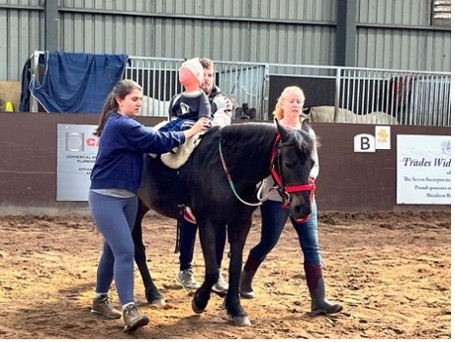
As we’ve finished our “horse stories’ for the moment, we thought it would be good to provide some info around how horses learn in the lead up to our educational event on Sunday. Above is a pic of Holly 2 (who is now back with her owners) doing some training work with the Hippotherapy group – as you may notice her rider is an alarmingly pink colour. Because the rider is a doll – this is one way to safely allow horses to learn to do a new ridden activity – no humans onboard!
Here are some other things you may or may not know about horses and how they behave/learn but it makes sense when you consider it alongside what you are taught in your lessons.
Horses are fascinating creatures and such good fun to spend time with, but we have a responsibility to understand not only how they behave, but why. Want to know more? Come along on Sunday 10th Dec at 4.30p.m when we will have a mixture of horses working under saddle and in hand so you can see how we work with them and help them learn. To book a place just contact reception!

